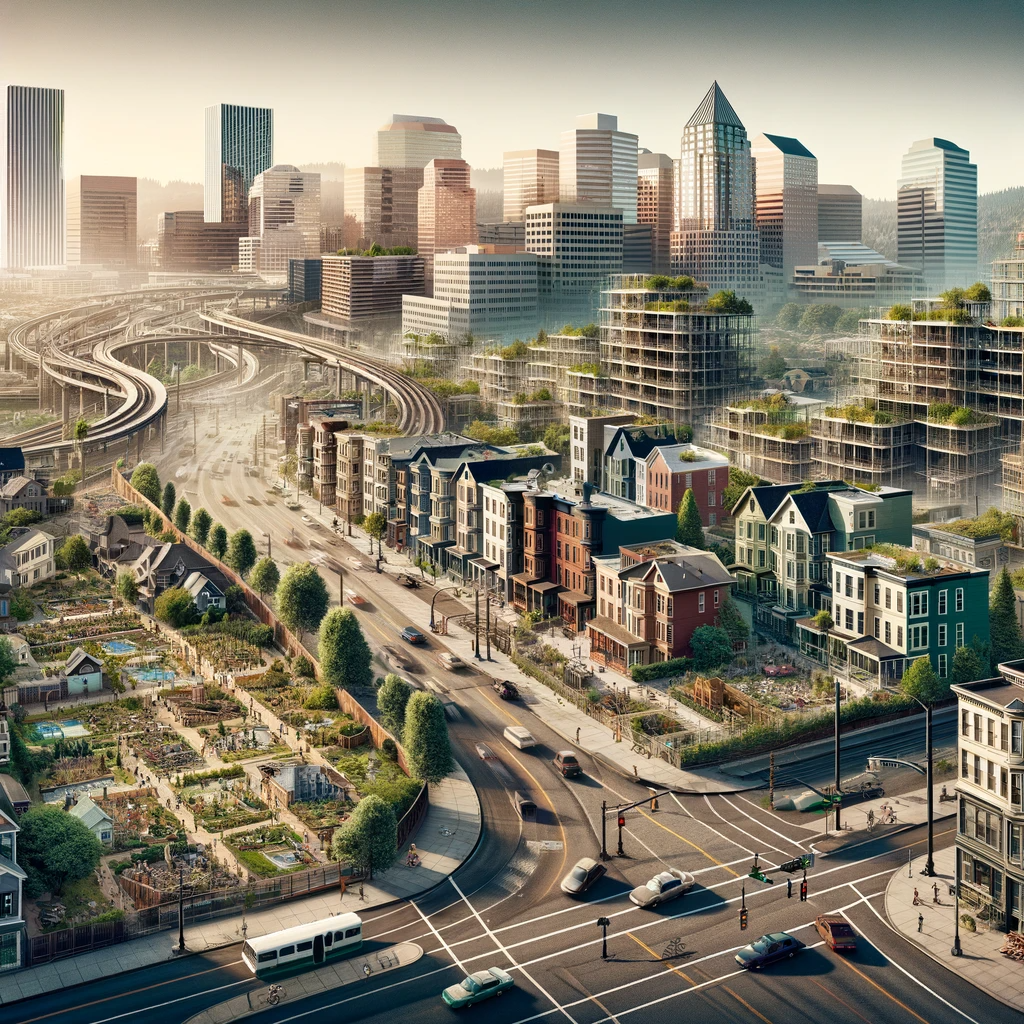Introduction
Portland, Oregon, known for its lush landscapes and vibrant culture, has undergone significant changes due to various urban renewal projects. These initiatives, aimed at revitalizing neighborhoods, improving infrastructure, and enhancing the quality of life, have had a profound impact on the city’s real estate landscape. This blog post explores the effects of Portland’s urban renewal projects on real estate, delving into the benefits, challenges, and future implications for residents and investors alike.
The Drive for Urban Renewal in Portland
Urban renewal in Portland has been driven by a desire to create a more livable, sustainable, and economically vibrant city. Projects have included the development of green spaces, the revitalization of underused or derelict areas, and the improvement of transportation systems. While these projects have brought about positive changes, they have also led to shifts in the real estate market, affecting property values, housing availability, and community dynamics.
Positive Impacts on Real Estate
- Increased Property Values: One of the most significant effects of urban renewal is the increase in property values in areas surrounding the projects. As neighborhoods become more attractive and amenities improve, real estate in these areas becomes more desirable, driving up prices and benefiting property owners.
- Attracting Investment: Renewal projects often attract new businesses and investors to the area, leading to economic growth and increased demand for both commercial and residential properties.
- Improved Infrastructure: Upgrades to transportation, utilities, and public spaces make neighborhoods more accessible and attractive, further boosting real estate values and improving the quality of life for residents.
Challenges and Controversies
- Displacement of Residents: As property values rise, so do rents and living costs, which can lead to the displacement of long-term residents who can no longer afford to live in their neighborhoods. This phenomenon, known as gentrification, is a significant concern associated with urban renewal.
- Loss of Historic Character: In some cases, renewal projects may lead to the demolition of historic buildings and the loss of a neighborhood’s unique character, which can be a point of contention for preservationists and local residents.
- Uneven Development: Not all areas benefit equally from urban renewal efforts, leading to disparities between neighborhoods and contributing to social and economic divides within the city.
Case Studies of Urban Renewal in Portland
- The Pearl District: Once a neglected area of warehouses and industrial buildings, the Pearl District has transformed into one of Portland’s most upscale neighborhoods, featuring art galleries, restaurants, and high-end residential units. The district’s renewal has significantly increased property values but has also raised concerns about affordability and displacement.
- South Waterfront: The South Waterfront area has seen extensive development, including high-rise condos, medical facilities, and green spaces. This urban renewal effort has turned a once-industrial area into a thriving mixed-use community, though it continues to evolve and face challenges related to inclusivity and infrastructure.
Future Implications
As Portland continues its urban renewal efforts, the real estate market will likely continue to evolve. It’s essential for city planners, developers, and community members to work together to ensure that renewal projects benefit the entire community, balancing economic growth with affordability and inclusivity. Sustainable development, preservation of cultural heritage, and equitable access to housing should be at the forefront of future urban renewal initiatives.
Conclusion
Urban renewal projects in Portland have reshaped the city’s neighborhoods, economy, and real estate market. While these initiatives have brought about positive changes, including increased property values and improved infrastructure, they have also posed challenges such as displacement and loss of historic character. As Portland moves forward, it will be crucial to address these issues, ensuring that urban renewal benefits all residents and contributes to a vibrant, sustainable future for the city.


 Facebook
Facebook
 X
X
 Pinterest
Pinterest
 Copy Link
Copy Link


